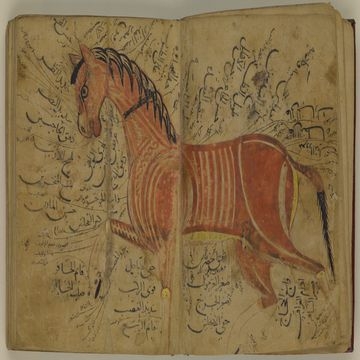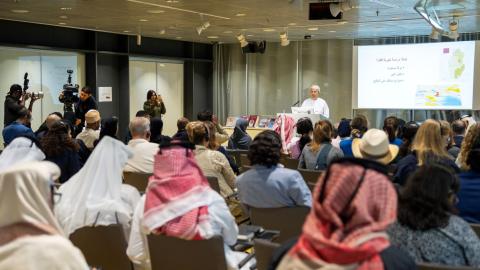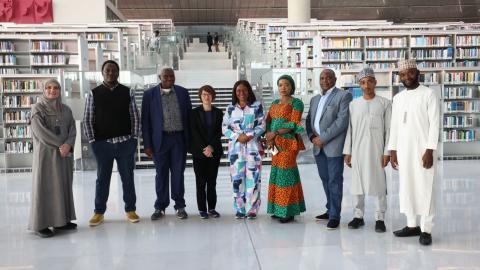
Qatar National Library’s Digital Resources Highlight Horsemanship in the Region
It is thought the Arabian Peninsula is the place where man first saddled a horse. Since the Pre-Islamic age, Arabs have been famed for their equine glories and extraordinary passion for horses.
Various manuscripts and books available on the Qatar Digital Library (QDL), an initiative launched in partnership between Qatar Foundation for Education, Science and Community Development, the Qatar National Library (QNL) and the British Library, capture the essence of horsemanship and the long-standing equine tradition in the Arab world.
Accessible on QDL is a book titled, ‘The Arabian Horse, His Country And People’, authored by Major-General William Tweedie, formerly HBM's Consul-General, Baghdad, and Political Resident for the Government of India in Turkish Arabia. In his book, Tweedie conveys his deep love of Arabian horses. Published in 1894, the book includes portraits of the people of Arabia, various sketches of Arabian horses, and a descriptive glossary of Arabic names for horses.
Tweedie noted that when his service was over, he found himself an Arab in regards to his love for horses. He believed that study of Arabian horses and the study of the Islamic faith are intertwined. Horsemanship in the Arab world can be easily seen as a recurring theme in the book.
QNL’s digital resources on Qatar’s heritage provide us with an ideal opportunity to explore equestrianism as Qatar successfully concludes the CHI AL SHAQAB 2016 in the landmark venue built within the premises of Education City. Throughout the event, Qatar hosted top-ranking local, regional and international riders who competed in various equine disciplines.
QDL contains a wealth of historic books and manuscripts where European politicians and explorers recorded their travels across the Arabian Peninsula. Through these adventures, they gained valuable insights into the traditions and ways of life of Arab tribes.
Arabian Peninsula is famous for horses bred by Bedouin Arabs. Arabian horses today forms part of the pedigree breed of European race horses.
QDL gives Arabian horse lovers and equine enthusiasts access to three gems from the golden age of Islamic civilisation. Dating back to 9th Century, Kit?b al-fur?s?yah wa-shiy?t al-khayl (Book of Horsemanship and Horse Characteristics) by Muh?ammad ibn Yaqub Akhi H?izam, the horse trainer of the Abbasid Caliph, al-Mu‘ta?id, is one of the earliest Arabic texts on veterinary medicine.
The second manuscript on horsemanship, which is available on QDL, is Kit?b al-bay?arah (A Treatise on Hippiatrics) by Mu?ammad ibn Yaqub Ibn Akhi ?izam, dating back to 13th Century.
Furthermore, written by Mu?ammad ibn ‘Isa ibn Ismail al-?anafi al-Aq?arai, the last masterpiece, Nih?yat al-su’l wa-al-umn?yah f? ta‘allum a‘m?l al-fur?s?yah (The Ultimate Reference on Horsemanship Skills), is a very rare 14th century Mamluk manual on horsemanship, military arts and technology.
In addition to QDL, QNL supports the World Digital Library (WDL) objectives to promote international and intercultural understanding and expand the volume and variety of cultural content on the Internet through the digitization of thousands of items from QNL’s prized Heritage Collection and making it available for free on the WDL website. WDL is an initiative founded by the Library of Congress, with the support of the United Nations Educational, Scientific and Cultural Organization (UNESCO) and the International Federation of Library Associations and Institutions (IFLA).



